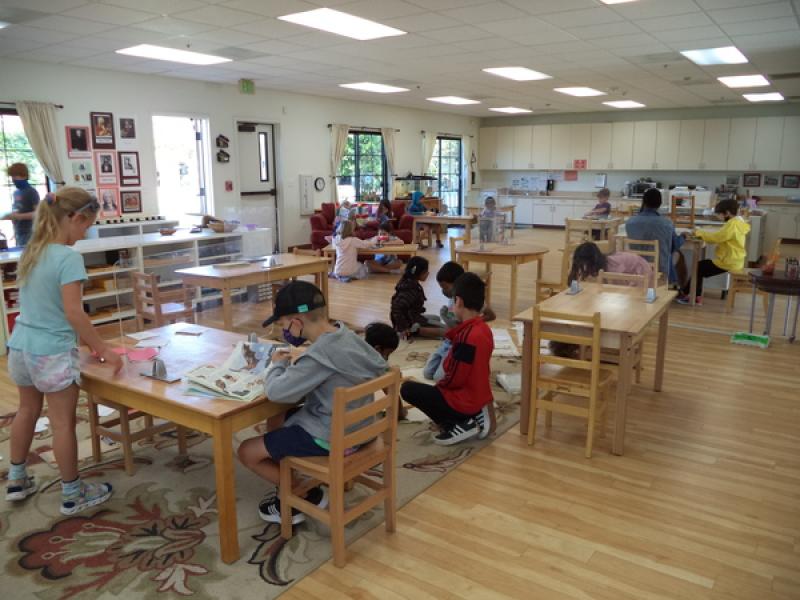Learning social and emotional discipline skills that teach our children positive outcomes are one of the foundations of Dr. Maria Montessori’s philosophy on how to create well-rounded young people.
Montessori teachers use specific discipline skills that address behavioral concerns they’ve observed. Negative behaviors include aggression, defiance and motivational issues.
Designed to build positive intent in social and emotional arenas, these tools focus on emphasizing: Choice, composure and consequence options and examples via empathy, encouragement and an assertive approach.
Building Positive Behaviors
Jenny Spencer from Conscious Discipline describes the Seven Skills of Discipline to increase positive approaches and actions designed to reduce conflict in both aggressive AND affected parties.
For example, by being assertive, we can offset bullying by building self-respect and respect for others.
Building healthy choices can offset ‘impulse’ by setting and achieving goals via persistence.
Creating composure in a child builds ways to manage anger and foster integrity by managing base emotions.
Understanding the consequences of your actions is taught by learning from your mistakes while building responsibility for your actions going forward.
Empathy, or ‘walking a mile in another’s shoes,’ is used to develop perspective and diversity.
Encouragement builds kindness and caring while creating interdependence among children, teachers and parents.
Finally, positive intent is a life and communication skill based on cooperating and problem-solving to build compassion and generosity.
Intermingling Works
When parents and teachers implement these ‘conscious skills’ together, children are taught ways to stay in control of themselves. This ‘self-regulation’ is accomplished by thinking rather than lashing out.
In these ways, we give children options and examples to manage and apply positive responses that uptick their social and emotional growth.
The Montessori Edge Defined
At Lifetime Montessori School, our experienced teachers help students develop academically, socially and emotionally during their formative toddler, primary (including Transitional Kindergarten TK), and Kindergarten years.
Montessori students learn via age-range peer interactions; individual, personal, ‘at your own pace’ lessons; and the ability to learn more about topics they’re passionate about.
To build thinking, when a teacher is asked a question, the response is usually to ask a rejoinder question. These questions will offer the students clues so they can investigate the topic more fully on their own. In other words, the Montessori Method or ‘Edge’ doesn’t give students the answers!
Delivering teachable social and emotional lessons to our students helps them define, manage and maturely defuse potential blow-ups. We hope these discipline skills are helpful for you going forward, too.
Lifetime Montessori School is located at 14727 Camino De La Luna in Santaluz. To watch a virtual tour, visit: https://www.lifetimemontessorischool.com/free-tours.


